How To Use Insecticidal Soap To Get Rid Of Pesky Pests – Plus, 3 Foolproof Ways To Make Your Own Spray
Insecticidal soap is an old-fashioned, but effective way to get rid of pests. Learn all about how to use this organic pesticide, plus 3 recipes to try yourself.
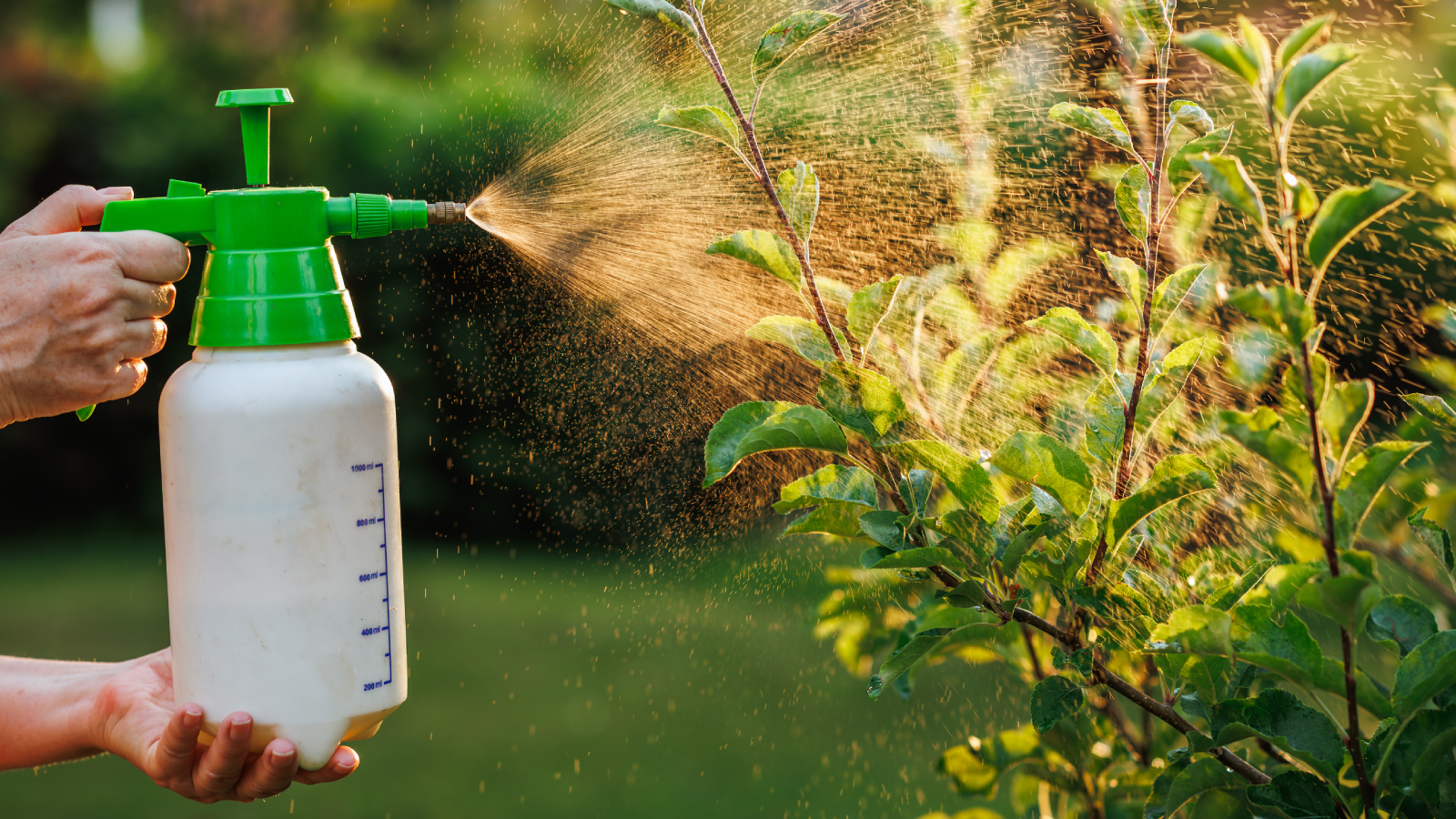
Sign up for the Gardening Know How newsletter today and receive a free copy of our e-book "How to Grow Delicious Tomatoes".
You are now subscribed
Your newsletter sign-up was successful
Today many home gardeners are on the lookout for organic, non-toxic pest control methods that are safe to use around pets and children and won’t harm the environment. Insecticidal soap is a great place to start.
These types of pest repellents have been in use for more than 200 years. But as more information has become available about their effectiveness, they’ve gained popularity. Many home gardeners today are trying to avoid adding chemicals to their landscapes that can get into the groundwater and contaminate the ecosystem or harm other beneficial insects. Insecticidal soaps are safe to use on edible plants as well as around children and pets. So they are an excellent weapon to have in your toolbelt for organic pest control.
You can buy commercial insecticidal soap sprays, like this one from Amazon, or you can make your own. Let’s take a look at how insecticidal soaps work, how and when to use them, and how you can mix up a batch of your own at home.
What Is Insecticidal Soap?
Insecticidal soap, also known as horticultural soap, is a non-toxic and environmentally-friendly natural pesticide. In general, soaps are made from the activity of an alkali substance like sodium or potassium hydroxide on fat. Soap is the broad term for these salts of fatty acids which are then mixed with whale, fish, coconut, corn, veggie, soybean or linseed oil.
Typically, insecticidal soaps contain potassium salts of fatty acids naturally found in fats and animal oils or plant derived oils. This means that insecticidal soaps differ from their more toxic counterparts as most modern soaps use potassium hydroxide, a traditional lye.
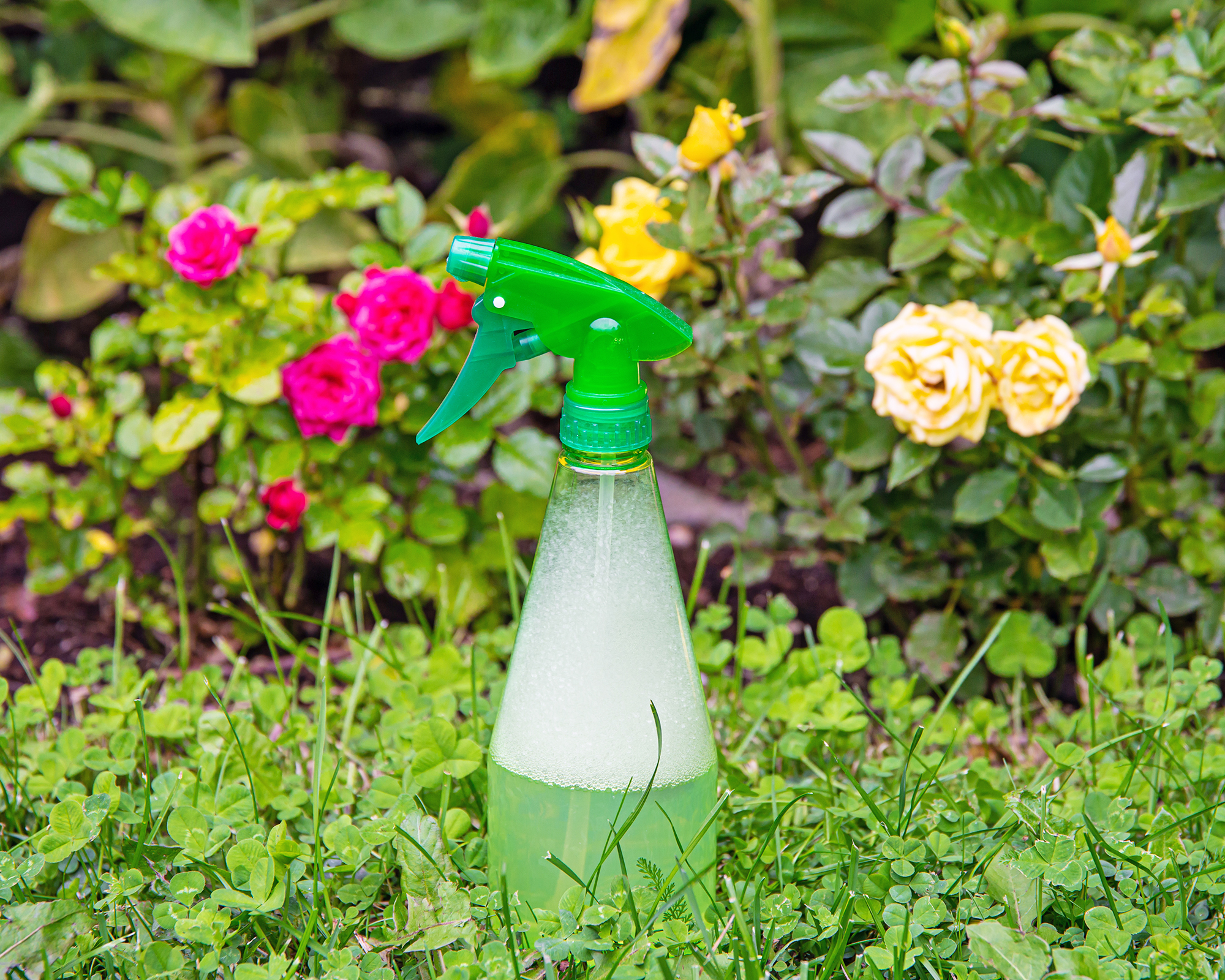
Insecticidal soap works best to control soft-bodied pests such as aphids, whiteflies, spider mites, mealybugs, and scale. It is most deadly to insects in their young life cycle, especially the nymph stage. It can also help eliminate sooty mold, honeydew, and leaf fungi.
Insecticidal soap kills pests via direct contact and has no systemic action, so it is therefore not useful against chewing insects like caterpillars. It doesn’t work well against flying pests, hard-bodied insects, or eggs either. But horticultural soap’s success against soft-bodied pests has generations’ worth of evidential support, so many modern gardeners are turning to this old-time remedy. Insecticidal soaps are formed from potassium salts of fatty acids.
Sign up for the Gardening Know How newsletter today and receive a free copy of our e-book "How to Grow Delicious Tomatoes".
How Does Insecticidal Soap Work?
Insecticidal soap works by removing the protective membrane from the insect’s body. This waxy layer keeps the bug’s tissues moist. When the layer is removed, the insect dries out. Essentially, the soap disrupts the cell membrane and the cell contents ooze from the membrane, leading to suffocation.
The soap residue breaks down quickly and can be used even on the day of harvest if you need to get rid of pests in the vegetable garden. The key to correct use, to avoid damaging the plant, is to apply the right type of soap in the right concentration.
How to Make Homemade Insecticidal Soap
Many homemade insecticidal soap recipes use dish soap as the active ingredient. Dish soap is a powerful detergent that contains many different components, but the one that kills bugs is sodium lauryl sulfate. Check the label of your dish soap to read the entire list of contents or contact the company before using it as an insecticide.
Dish soaps are not true soaps but rather detergents, which are made of synthetic chemicals specifically designed to strip grease and oil from cookware. Using detergent-based soaps may remove the waxy layer from the surface of your plants’ foliage, opening it up to microbial, viral, and fungal diseases. The loss of this waxy cuticle also causes the plant to lose water and dry out the plant.
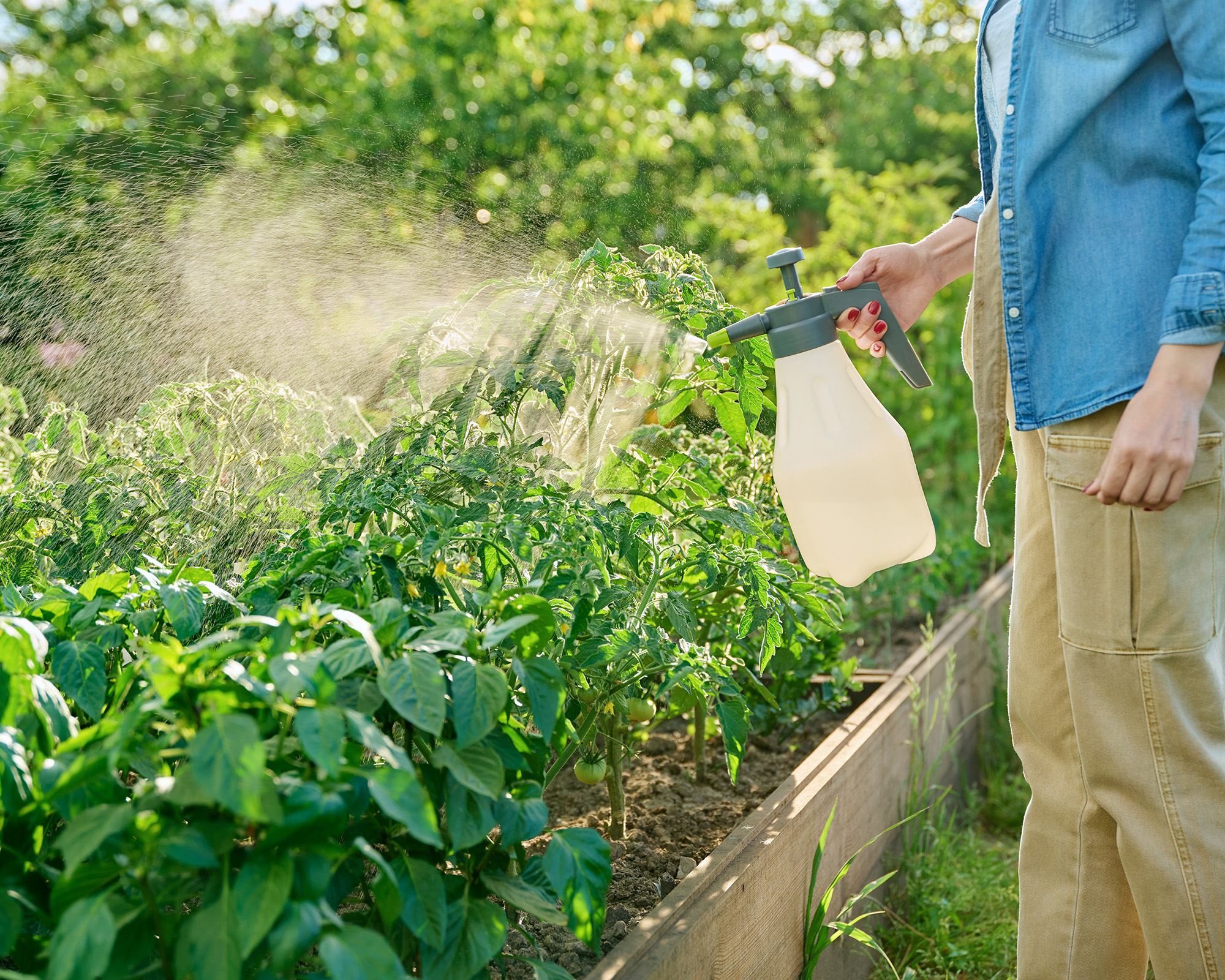
Some plants with a thick waxy layer, such as succulents, are more susceptible to horticultural soaps than others. Keep reading for a list of plants that can’t handle insecticidal soaps.
Excessive application of a formula that is too strong can also burn the leaves. You can use dish soap to make a DIY insecticidal soap, it just needs to be diluted to the proper ratio first. DIY insecticidal soaps made from detergents can also affect beneficial insects. So while they clean dirty cutlery well, harsh dish soaps are not organic and not suited for use in an organic garden.
Traditional Insecticidal Soap Recipe
- 2.5 tablespoons (37 ml) vegetable oil
- 2.5 tablespoons (37 ml) pure liquid soap (like Castile soap, which you can get on Amazon)
- 1 gallon (3.8 L) warm water
This is a more traditional recipe that makes an eco-friendly insect spray. Mix together the above ingredients and pour into a spray bottle, then apply to infested plants.
Easy Insecticidal Soap Recipe
- 1 tablespoon (15 ml) mild dish soap (avoid products that say “ultra” or “super”)
- 1 cup (240 ml) of vegetable oil
Dilute the mixture with water prior to application. Combine 1 teaspoon of the soap mixture with 1 cup of water before spraying it on plants. You can apply it once per week as long as your insect problems persist.
All-Around Pest Repellent Recipe
- 1 tablespoon (15 ml) pure liquid soap (like Castile soap)
- 1 quart (1 L) warm water
- 1 teaspoon (5 ml) ground red pepper or garlic
- 1 teaspoon (5 ml) apple cider vinegar
This recipe will not only get rid of pests that are already on your plants, but it will help repel other unwanted intruders as well. Mix together the above ingredients and pour into a spray bottle, then apply to plants.
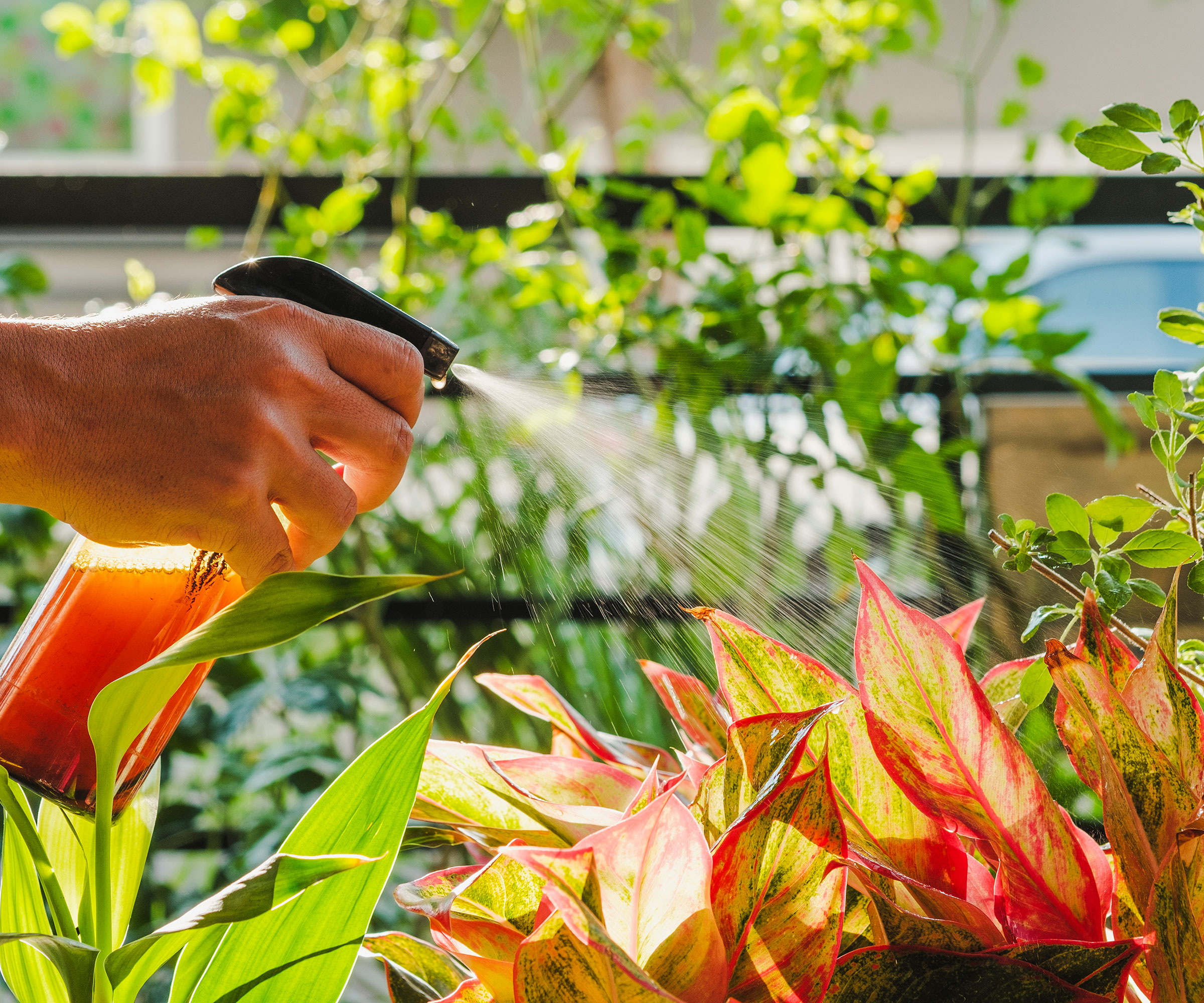
How to Use Insecticidal Soap
Store-bought horticultural soaps will list the application instructions. It is important to follow them carefully, because even these products have the potential to dry or burn plant leaves in high concentrations.
Some insecticidal soaps are pre-mixed in spray bottles and ready to use as is. Others come in a concentrated formula and you will need to dilute them with the recommended amount of water before use. EPA-approved products contain just 1 to 2 percent soap by volume. This reduces the chance of damaging plants.
It is important to only spray plants that are healthy, that are not under stress other than the insect population, and to avoid spraying when temperatures are above 90 degrees Fahrenheit (32 C). The best time to spray is early morning, just as the dew is drying. To be most effective, you must apply insecticidal soaps vigilantly and thoroughly. You may need to reapply weekly until the pests are under control.
Warnings When Using Insecticidal Soaps
There are few limitations to insecticidal soaps. Just be sure to thoroughly wet the insects, and be aware that effectiveness may be limited if the soap solution dries or washes away. Phytotoxicity may occur if applied during hot days, so avoid spraying if temperatures are over 90 F (32 C).
Even organic insecticidal soaps can harm beneficial insects or plants that are susceptible to phototoxicity. They are generally safe for humans and animals. However, some people can get a rash from them so it's best to wear gloves when applying.
Since there is no residual activity left behind by insecticidal soaps, they rely on contact to kill pests. If an insect has not come into contact with the spray, it isn't affected. Also insecticidal soaps have no efficacy on insect eggs.
For example, insecticidal soaps work on azalea lace bug nymphs but not their eggs. Further, all stages of the lace bug live on the underside of the leaf, which is often not thoroughly sprayed with insecticidal soap.
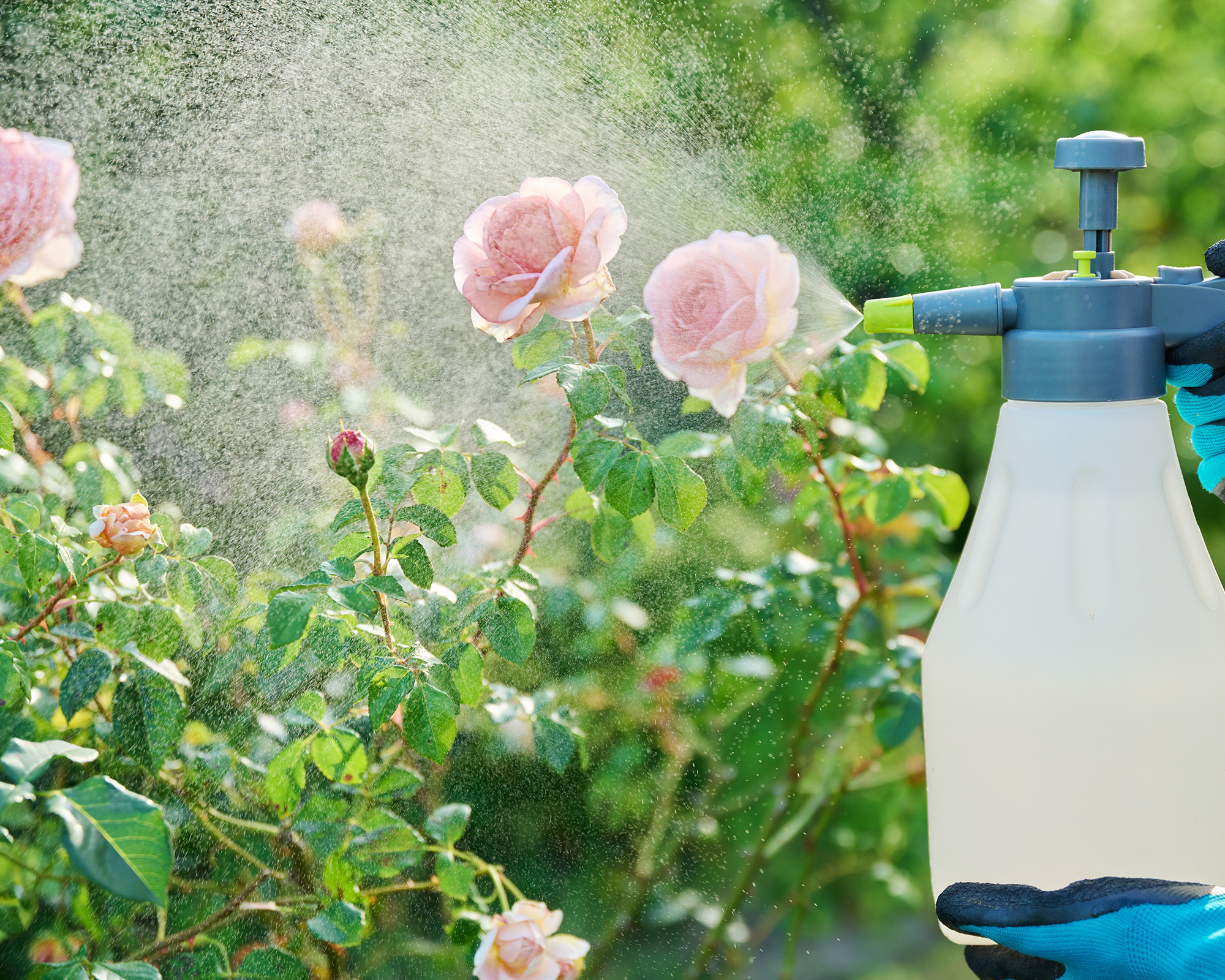
Plants That Are Sensitive to Insecticidal Soap
Certain plants have an innate sensitivity to insecticidal soaps, whether they’re store-bought or homemade. Seedlings, young transplants, plants with a new flush of growth, and cuttings that have not fully rooted may develop toxicity symptoms.
Yellow or brown spots on leaves, brown leaf tips, and sunscald are the most common symptoms. Some species of plants are also sensitive to soap formulas. Horse chestnuts, sweet peas, bleeding hearts, mountain ashes, and Japanese maples do not appreciate soap applications. Other sensitive plants include:
- Portulaca
- Cucumber
- Crown of Thorn
- Plums
- Cherries
- Jade
- Impatiens
- Gardenia
- Lantana
- Nasturtium
- River birch
- Schefflera
- Easter lily
- Maidenhair fern
- Red bud
- Dieffenbachia
- Poinsettia
- Palms
- Azalea
- Begonia
- Geranium
- Fuchsia
Frequently Asked Questions
Does insecticidal soap need to be rinsed off?
You do not need to rinse the plant immediately, but after many applications, it is a good idea to spray the leaves with water to remove any residual build-up.
What is the best soap to use for insecticidal soap?
Castile soap is a good option and it’s also organic. Mild dish soaps are also gentle. Do not use laundry detergent. This is far too harsh and will definitely damage plants. Also, avoid using hand or body soaps which contain many ingredients that could injure your plants.

Bonnie Grant is a professional landscaper with a Certification in Urban Gardening. She has been gardening and writing for 15 years. A former professional chef, she has a passion for edible landscaping.

